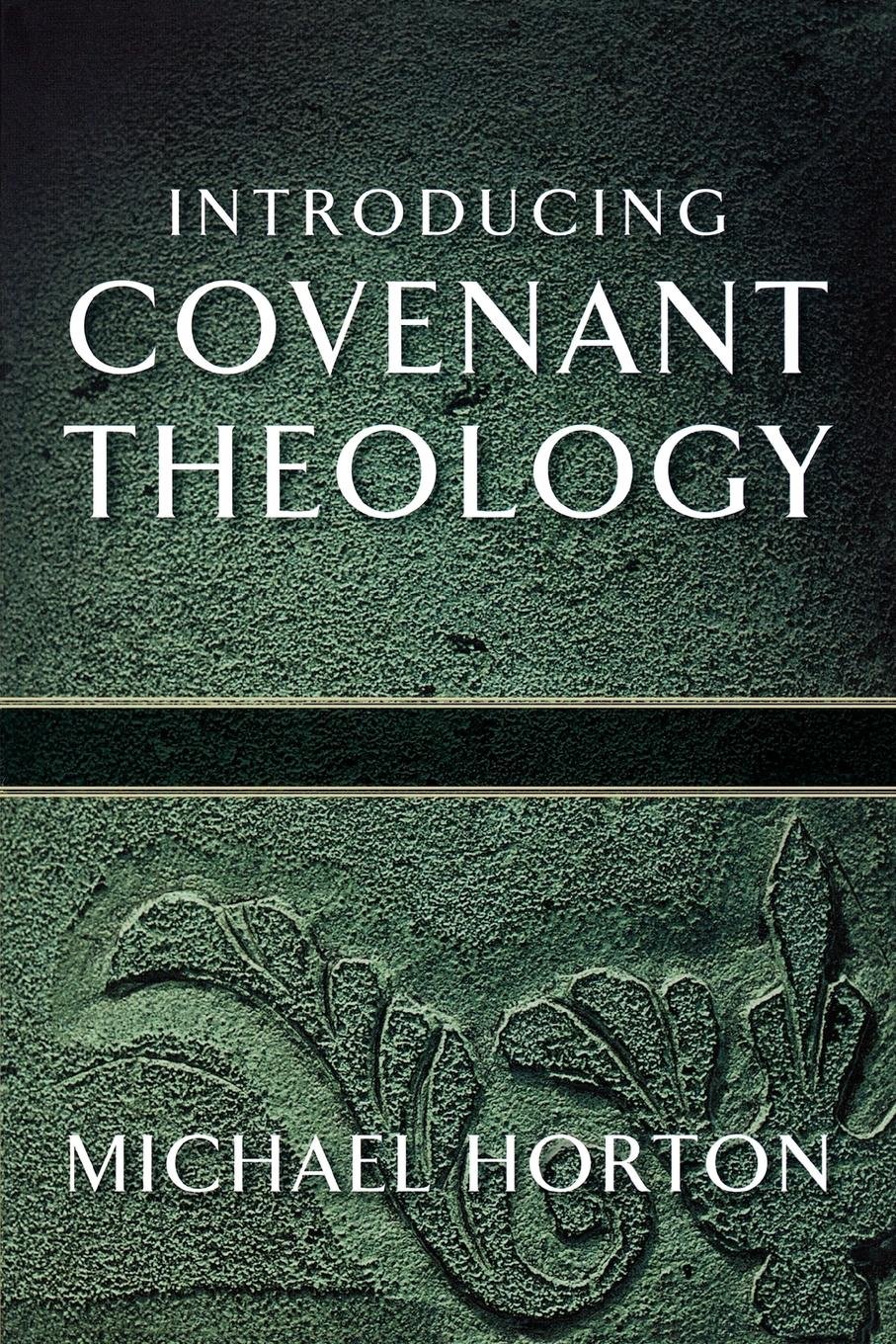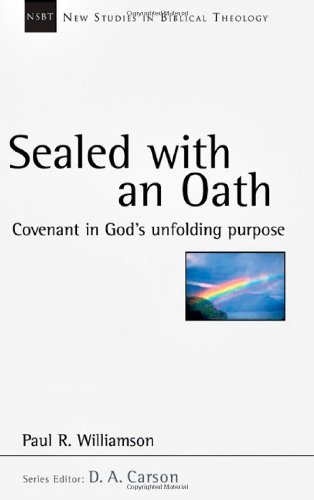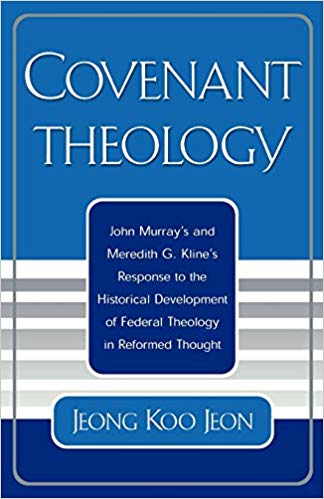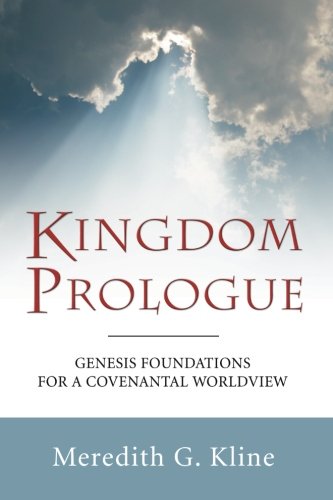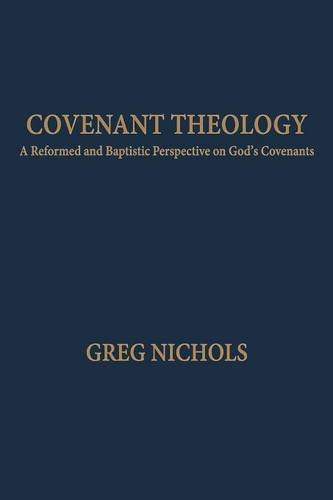THE third article of the covenant of Redemption, past between the Father and the Son, concerneth the benefits, gifts, and graces to be given unto the redeemed: all which gifts and graces, are summarily comprehended in that one gift of God, spoken of, John 4.10, which gift is Christ, who is freely offered unto, and given to, the elect believer for righteousness and eternal life, according to what was said, Isa. 9.6, for, unto us a child is born, a Son is given, on whose shoulders the government is laid, whose Name is called Jehovah, the wonderful counselor, the strong God, the eternal Father and Prince of peace. And, 2 Peter 1.3, who according to his divine power, hath given unto us all things which pertain to life and godliness, through the knowledge of Him who hath called us to virtue and glory.
2. The benefits which are appointed for the redeemed, are so conveyed and brought unto them, that first, they are Christ’s riches which he hath purchased unto the elect, and being resolved to die, that the purchase might be made fast to his people, he hath made his latter Will and Testament once and again, and left in legacy to all that believe in him, all things which belong to righteousness and salvation; and these benefits, in an acceptable time, he effectually applieth and puts them in possession thereof. Of which gifts, we shall name chiefly three: the first is regeneration, or turning of the man toward himself; the second is the gift of saving faith; the third is perseverance. In which three gifts, the patrons and magnifiers of the power of man’s free-will, do what in them lieth to obscure the glory of God’s {57} free grace, by glorying that without the special grace of God they can convert themselves or not, as they please, so that when God intends their conversion, and useth all means for their conversion, they are able to resist all his gracious operation, and make void his purpose and endeavour. But this Covenant of Redemption, past between the Father and the Son, Mediatour and Redeemer, doth decide the question and give them the lie: for, only they whom God did foreknow, did he predestinate to be conform to the image of His Son—and whom he did predestinate, them he also called; and whom he called, them he also justified; and whom he justified, them he also glorified, Rom. 8.28.
Concerning these three gifts
IT is agreed between God and Christ, that the elect shall be converted invincibly and infallibly, and that saving faith shall be bestowed on them, and that they shall persevere in the obedience of faith so, as they shall not totally and finally fall away from God’s grace.
It is promised to Christ, Psalm 110.3, that in the day of His power, His people shall be willing; for, albeit the native corruption of their will, opposeth itself and resisteth the holy Spirit, when he is using the means to convert them, yet in an acceptable time, the invincible power of God’s free grace toward them, so taketh away all actual resistance, that the man, unwilling of himself, is made most freely and heartily willing to be reconciled to God: for, God can both preserve the natural liberty of the will, and take from it that crookedness and forwardness that is in it; he can infuse and create in the man a right spirit, and new habits of grace, and can bring forth these habits unto exercise, making the redeemed man not only able to will, but also actually to will and to do what is pleasant to him, Philip. 2.13, and Ephes. 2.8, we are taught, that faith is not of our selves, it is the gift of God; not of works, lest any man should boast. And this gift of saving faith, is bestowed only on the elect; and therefore it is called the faith of the {58} elect, Titus 1.1, and only they believe in Jesus Christ, that are ordained unto eternal life, Acts 13.48, yea, every one cometh to Christ, who is given to him of the Father, John 6.37, and no man cometh to Christ, save he whom the Father draweth, John 6.44, but they that are not redeemed, do not come to Christ for righteousness and life, John 10.26, ye believe not, saith Christ to some Jews, because ye are not of my sheep, My sheep hear My voice and I know them, and they follow Me.
As for perseverance, the Father promiseth to the Son, that the work of grace shall be firm in all the redeemed ones, or in his elect seed, Isa. 59.21, as for Me (saith the Lord to Christ) this is my covenant with them, my spirit that is upon thee, and my words which I have put in thy mouth, shall not depart out of thy mouth, nor out of the mouth of thy seed, nor out of the mouth of thy seed’s seed, saith the Lord, from henceforth and forever. And, Jer. 32.40, I will make an everlasting covenant with them, that I will not turn away from them to do them good, but I will put my fear in their hearts, that they shall not depart from me.
And a special command is given unto Christ, for preserving all unto eternal life who come unto him, John 6.39, this is the Father’s will, which hath sent me, that of all which he hath given me, I should lose nothing, but should raise it up at the last day: which Christ undertakes, that he will faithfully perform, John 10.28, while he saith, I give unto them eternal life, and they shall never perish, neither shall any man pluck them out of my hand, &c. But, that we insist not too long in this argument (whereof the Orthodox divines have written abundantly in their disputations against the foresaid errour) because the adversaries take their pretended arguments from the instability of men’s will, in the matter of perseverance, and from the freedom and power of man’s changeable will in the matter of conversion and saving faith, and from the manner of God’s speaking to the mixed multitude of both called and not chosen, and to them that are both called and chosen, we shall content ourselves {59} for clearing this covenant betwixt the Father and the Son, Mediatour and Redeemer, to make the matter fast concerning the elect, founding their conversion, faith, repentance, perseverance, and salvation, upon the unchangeable covenant of Redemption, fixed upon the settled agreement between God, and God the Son Mediatour and Redeemer, as shall be proven from five places of Scripture.
The first proof, is from Isa. 52.13-53.12
THE first place is Isa. 52, verse 13, and forward to the end of chapter 53, where we have, first, the two parties contracters, God the Father, and Christ; for, the Father brings forth his confederate Son to be incarnate by covenant, his servant, whom he employs in the whole work of Redemption, as the meritorious cause and accomplisher of it; behold My servant, saith God the Father by his Spirit, speaking by the Prophet, Chapter 52, verse 13. Next, both parties are sure of the event of the paction, and of the accomplishing of the whole work gloriously, behold, (saith he) My servant shall deal prudently and prosperously, He shall be exalted and extolled and be very high, verse 13. Thirdly, he tells the proper price, which Christ the Son shall pay for the Redemption of his people, agreed upon by paction, to wit, the exinanition and humbling of the Son incarnate unto the ignominious death of the cross, that His visage shall be marred more than any man, and His form more than the sons of men, verse 14, and more particularly, Chapter 53, verse 2, He hath no form nor comeliness, and when we shall see Him, there is no beauty that we should desire Him, He is despised, and rejected of men, a man of sorrows and acquainted with grief, &c. verses 2,3. He was wounded for our transgressions, verse 5. He shall make his Soul an offering for sin, verse 10.
Fourthly, Christ the Son of God incarnate, is assured and confirmed of the sweet fruit of his passion in the {60} conversion of many nations, whom he should sprinkle with the blood of the covenant and sanctify by the water of His holy Spirit, Chapter 52, verse 15, He shall sprinkle many nations, &c.
Fifthly, God and Christ are agreed and well pleased in the conversion of so many as are elected, and given to Christ, to have in Him the right of adoption, Chapter 53, verse 10. He shall see his seed, that is, He shall regenerate the elect, and make them His children, and see them so, to His satisfaction.
Sixthly, no meritorious nor impulsive cause is found in the persons redeemed, for which the punishment due to them should be transferred upon the Mediatour Christ our Redeemer; for, they should be found in themselves but despisers of Christ, because of His sufferings, Chapter 53.4, Surely he hath born our griefs, and carried our sorrows; yet we did esteem him stricken, smitten of God and afflicted.
Seventhly, no sin nor meritorious cause of punishment is found in Christ the Redeemer, for which He should be smitten, Chapter 53, verses 5,9, He was wounded for our transgressions—he had done no violence, neither was any deceit in his mouth.
Eighthly, peace and reconciliation and healing of our sinful and miserable sicknesses, and deliverance from wrath, are purchased by the price of His blood, Chapter 53, verse 5, the chastisement of our peace, was upon him, and with his stripes we are healed.
Ninthly, these sufferings Christ did not endure unwittingly, or unwillingly, but by consent, by covenant deliberately, Chapter 53, verse 7, He was oppressed, and he was afflicted, yet he opened not his mouth; he is brought as a lamb to the slaughter, and as a sheep before his shearers is dumb, so he opened not his mouth.
Tenthly, the cause of this covenant, whereby the price is called for and yielded unto, and paid, is the only free grace of God and His good pleasure, Chapter 53, verse 10, It pleased the Lord to bruise him, He hath put him to grief. {61}
Eleventhly, It is agreed between the Father and the Son, that our sins should be imputed unto Him, and His righteousness imputed unto us, and that the redeemed should believe in him and so be justified, Chapter 53, verse 11, he shall see of the travail of his Soul, and shall be satisfied, by his knowledge, or faith in Him, shall My righteous servant justify many: for he shall bear their iniquities.
Twelfthly, It is agreed between the parties, that for whom Christ should lay down His life, He should stand intercessour also, for bringing unto them all the purchased graces and blessings, Chapter 53, verse 11, he bare the sins of many, and made intercession for the transgressours: the rest of the world beside the elect, He interceded not for, John 17.9,10.
Hence it followeth, that God and Christ did not bargain for the Redemption of all and every man; no not for the Redemption, conversion, and salvation of all and every man to whom the Gospel was to be preached: for, many were to be called, who were not chosen, to whom the gift of saving faith was not to be given, nor the power of God to salvation was never to be revealed; and this is the observation which the Evangelist makes upon the 1st of Isaiah 53; John 12.37. &c. But though he had done so many miracles before them, yet they believed not on him, that the saying of the prophet Isaiah might be fulfilled which he spake, Lord, who hath believed our report? and to whom is the arm of the Lord revealed? therefore they could not believe, because Isaiah said again, (Isa. 6.9,10) he hath blinded their eyes, and hardened their hearts, &c.
Secondly, it followeth hence, that election and Redemption were not for the foreseen faith or works of the elect redeemed, but of the mere grace and goodwill of God, and all done for them and in them, contrair to their deservings; for, it is said, Isa. 53.6, all we, like sheep have gone astray, and the Lord hath laid on him the iniquity of us all.
Thirdly, it followeth hence, that it was agreed upon, {62} that saving grace and conversion and sanctification, should infallibly and invincibly come to pass and be given to the redeemed, Isa. 52.13, Behold, My servant shall deal prudently and prosperously; and, verse 15, he shall sprinkle many nations; and, Isa. 53.11, by his knowledge shall my righteous servant justify many.
Fourthly, hence it followeth, that the agreement is past for their final perseverance and full salvation: for, Isa. 53.5, with his stripes we are healed: now our healing, is our full salvation from our sin and misery, or our deadly sickness. And, Isa. 53.10, the pleasure of the Lord shall prosper in his hand: the pleasure of the Lord is partly our sanctification, 1 Thes. 4.3, partly, our salvation and glorification, John 6.39, this is the Father’s will which hath sent me, that of all which he hath given me, I should lose nothing; but should raise it up again at the last day. And to this purpose powerfully doth his intercession serve, from which the Apostle concludes, that believers shall be perfectly saved, Heb. 7.25, wherefore he is able also to save to the uttermost, them that come to God by him, seeing he ever liveth to make intercession for them.
The second proof is from Isa. 59.20,21.
THE second place is from Isa. 59.20,21, where, first, we have the parties agreeing pointed at: the Lord Jehovah saith and of the Redeemer He saith, that He shall come to Zion as Redeemer. Next, we have the kind of agreement between the parties, God on the one hand, and the Redeemer with the redeemed, for whom and in whose name he makes the agreement; this is my Covenant with them, but first with Christ, as the words following do shew. Thirdly, we have the party redeemed, Zion and Jacob that turn from transgression, which is the mark of true believers in Christ and of the elect, for whom this grace is appointed, as Romans 11.7, Israel hath not obtained that which he seeketh for, but the election have obtained it, and the rest were blinded. And, Romans 11.26, all this Israel shall be saved, as it is written. {63}
Fourthly, we have the sort of their delivery, which shall be not only by price paying, but also by powerful and effectual working, as the original imports, Romans 11.26, and Isa. 59.20. Fifthly, the benefits bestowed upon the elect, are comprehended under the designation of the redeemed; they are to be turned from their iniquity by effectual conversion, by granting them faith in Christ, repentance and reconciliation. Sixthly, it is shewed how these graces shall be brought to pass, to wit, by application thereof by the word and Spirit of Christ; from which, sanctification, salvation, and the perpetuation of all graces unto salvation, do flow and follow on them; My Spirit that is in thee, saith the Lord to the Redeemer incarnate, and My word which I have put in thy mouth, shall not depart out of thy mouth, nor out of the mouth of thy seed, &c.
These articles of the covenant of Redemption make expressly, first, against universal Redemption of all and every man: because Christ, as is shewed before, makes his bargain for the elect, and leaves the rest in blindness, and is a Redeemer of none but of these to whom He is a deliverer actually, from whom He turneth away iniquity and ungodliness; which benefits befall none, but the elect and the redeemed.
Next, they make against election for faith and foreseen works, because when Christ cometh to call-in the Jews, He finds nothing commendable in them but impiety and transgression and defection, and whatsoever might provoke Him to reject them; they are turned from transgression.
Thirdly, they make against a mere possible and contingent conversion: for, invincible grace is promised here; for, the word and the Spirit of Christ shall take up a dwelling in them, and not depart from them.
Fourthly, they make against the doctrine of the Apostasy of the saints, and uncertainty of their perseverance, because here it is promised to Christ, that from the heart and mouth of His seed, the word and Spirit of Christ shall never depart. {64}
The third proof is from John 6.37, &c.
THE third place is, John 6, from verse 37 to 45, where, first, is set down the party contractors in the Covenant of redemption; for, the Elect are given over into the hand of Christ by the Father; All that the Father giveth to me, cometh to me, verse 37.
Secondly, upon the Father’s giving of the Elect unto Christ followeth, in due time, the conversion and saving faith of the redeemed; All that the Father giveth me, cometh to me, saith Christ.
Thirdly the redeemed are committed unto Christ, as to their leading on, preservation and perfecting of their salvation; This is the Father’s will which hath sent me, that of all which he hath given me, I should lose nothing, but should raise it up again at the last day.
Fourthly, it is agreed by what means the faith of the redeemed shall be formed in them, which are, the revealed sight of Christ the Son of God in the Word; the powerful drawing of the illuminate soul unto Christ, which powerful draught overcometh all opposition and resistance, because it is omnipotent and invincible: for, no man cometh to Christ, but he whom the Father draweth, verse 44, and that by making them savingly, and in a lively manner see the Son and believe on him, verse 40.
Hence followeth,
First, that it is false Doctrine to teach, that there is an universal redemption unto life of all and every man; because not all, but only some are given, and made to come to Christ; the rest that are not given, come not.
Secondly, it followeth, that Election is of mere free grace; because men come not unto Christ that they may be given, but they are given unto Christ, that they may be brought and come unto him.
Thirdly, by this agreement, the powerful conversion of the redeemed and their powerful preservation unto eternal life, is as certain as the power, and constancy, and obedience of Christ unto the Father, is firm and {65} certain; This is the will of him that sent me, that of what he hath given me, I should lose nothing, but raise it up at the last day, verse 39.
The fourth proof is, John 10.14.
THE fourth place is, John 10, from verse 14 to verse 30, where we see, that the Lord Jesus, the true Pastor of Israel, before he was incarnate, Psalm 23, continueth in that same office now, being incarnate, and gives his people to understand this, when he saith, I am the good shepherd.
Secondly, the care and custody of all the redeemed, both converted and unconverted, was put upon Christ, verses 14,16, I know my sheep, and am known of mine; and other sheep I have, which are not of this fold, them also I must bring in, and they shall hear my voice.
Thirdly, the price of their redemption is clearly agreed upon, verse 15, As the Father knows me, even so know I the Father; and I lay down my life for my sheep.
Fourthly, the Father accepts the price, and is satisfied and well-pleased with it, verses 17,18, Therefore doth my Father love me, because I lay down my life, that I may take it up again, &c.
Fifthly, all the redeemed are infallibly converted, but they that are not redeemed are not converted, verse 27, My sheep hear my voice, and I know them and they follow me; and, verse 26, but ye believe not, because ye are not of my sheep.
Sixthly, albeit the redeemed and converted shall not want enemies, who shall go about to mar their perseverance and salvation, yet shall they not prevail, verse 28, I give them eternal life, and they shall never perish, neither shall any man pluck them out of my hand.
Hence followeth, first, that the doctrine of universal redemption of all and every man unto life is false; because only the redemption of the elect sheep is agreed upon, for whom he layeth down his life, verse 15, and the rest are not redeemed nor ordained to life, for these he {66} speaks to, verse 26, they were not of his sheep, but remained unbelievers.
Secondly, it followeth, that the election of men is not for faith or works foreseen, but on the contrary, faith is ordained to be given unto the redeemed, because they are elected and given over unto Christ to convert and save them, verse 16, other sheep I have, and them I must bring in, and they shall hear my voice.
Thirdly, it followeth, that the conversion of the Elect doth not depend on their will, but upon Christ’s undertaking to make them believe and upon His omnipotency, verse 16, other sheep I have, and them I must bring in and they shall hear my voice.
Fourthly, it followeth, that albeit the redeemed believers be in themselves witless as sheep, and weak, and ready to be destroyed, and compassed about with many enemies as sheep among wolves, yet because of the omnipotency of the Father and of the Son, that have taken the care and custody of them, they shall persevere, and it is impossible they should perish or not persevere, John 10.28,29, I give them eternal life; and they shall never perish, and none can take them out of My Father’s hand.
The fifth proof is, Psalm 40
THE fifth place is Psalm 40, explicate by the Apostle, Heb. 10.5-7, where, first, the Spirit of God expounds the covenant whereof we are speaking, and brings in the parties, God and Christ, as speaking one to another, and as it were, in our sight and audience, repeating the terms thereof. The price of Redemption is first spoken of, for expiation of sin, not to be forgiven without blood, without better blood than the blood of beasts, Heb. 10.4.
Secondly, all satisfactions by men, and whatsoever price can be paid by mere men, are rejected; sacrifice and oblation thou wouldest not, verse 5.
Thirdly, nothing except only the incarnation of the Son the Mediatour, His obedience and suffering to the {67} death, could satisfy divine Justice; But a body hast thou prepared Me, verse 5.
Fourthly, the Mediatour Christ, offers Himself pledge and Surety of His own accord, and takes the condition; then said I, lo, I come, to wit, as Surety to pay the ransom and to do thy will, Heb. 10.7.
Fifthly, Christ the Surety, not only condescends upon the price, but also upon the persons to be redeemed, and their sanctification; by which will we are sanctified, by the offering of the body of Christ once for all: and this price is now actually paid, Heb. 10.10.
Sixthly, the price being paid, the Mediatour goeth about the application of the purchased benefits, by His intercession, Heb. 10.12,13, this man after he had offered one sacrifice for sin for ever, sat down on the right hand of God from henceforth expecting till his enemies be made his footstool.
Hence followeth, first, that there is no universal Redemption of all and every man unto life, because by one offering he hath perfected for ever, them that are sanctified, Heb. 10.14, therefore they were never redeemed, who are never sanctified; and only they are perfected, who are redeemed.
Secondly, it followeth, that not for any thing in man, neither fore-seen faith or works, are men elected and redeemed, because all is rejected that mere man can do, that the mere grace of God may appear in Christ’s undertaking for men of His own accord; Sacrifice and oblation thou wouldest not, then said I, behold, I come, Heb. 10.5,7.
Thirdly, by Christ’s death, purchase is made of the infallible conversion and sanctification of the redeemed, and of their perseverance unto perfection. By one offering of Christ He hath perfected for ever them that are sanctified, Heb. 10.14, and therefore the redeemed cannot but be converted, cannot but be sanctified, cannot but persevere unto perfection, and that for ever, Heb. 10.12-14. {68}
The use of this article is, first, that all these who hear the Gospel, and have in any sort embraced it, should in the acknowledgement of their natural corruption and perverse wickedness, humble themselves before God, and pray for, and expect grace according to the promises offered in the Gospel.
Secondly, that they who are already sensible of their sins and ill deservings, may not run away or be discouraged, but so much the rather, flee to Christ in whom relief from sin and misery is promised to such.
Thirdly, that they who have fixed their eye on the Son, resolving to cleave unto him, should acknowledge the powerful draught of God’s almighty hand, who hath caused them to come to Christ, and should upon the begun work of grace, conceive lively hope of salvation, and study to purify their souls in this hope.
Fourthly, that they who find the instability and inconstancy of their own free-will, and have experience of their own heart, deceiving them frequently, after they have engaged themselves by promises and vows to take better heed to their ways, should not cast away their confidence in Christ because of their own infirmity, but that they should lean less to their own strength, and lay hold on Christ’s power, fidelity, and constancy so much the more, for to help the weak at such a dead lift. The Apostle, looking to Christ’s engagement in the covenant, for those who in any measure of sincerity adhere unto him, hath said, 1 Cor. 1.8,9, Christ shall confirm you unto the end, that ye may be blameless in the day of our Lord Jesus Christ. God is faithful, by whom ye are called unto the fellowship of his Son Jesus Christ our Lord.
Fifthly, let us not take the guiding of our own free-will, but let so many as are fled to Christ, give him the glory of the inclining of our heart to his testimonies, and to his obedience in any measure, and know that every spiritual motion floweth from his purchase, and application of what is bestowed on us. And when we find his hand withdrawing, and our heart inclining {69} to what is not right, let us run to him to right it, in hope to be helped by his grace to fight against whatsoever adversary of our salvation.
